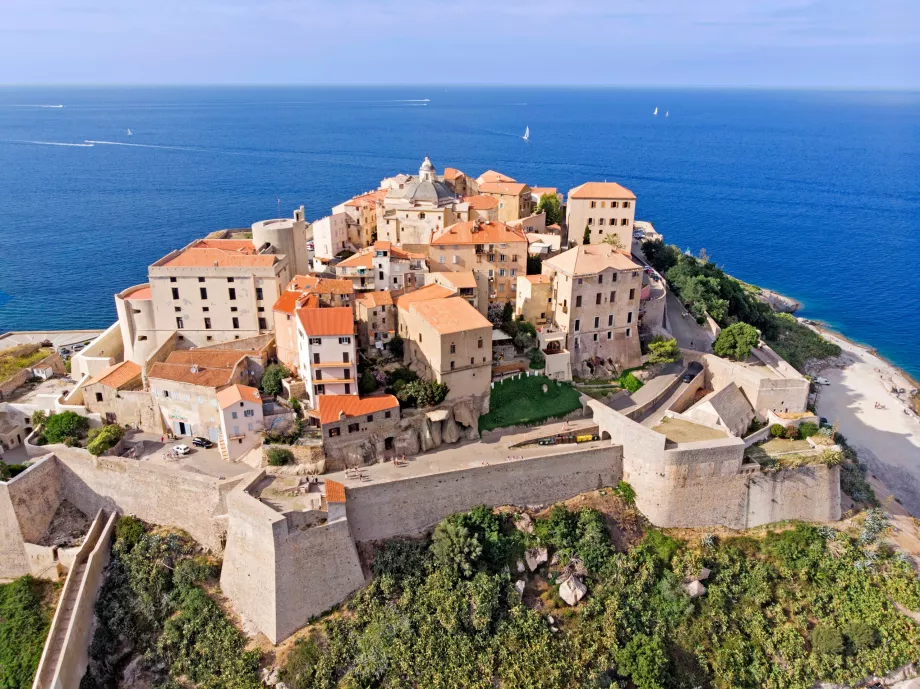
Culture and history of Thailand
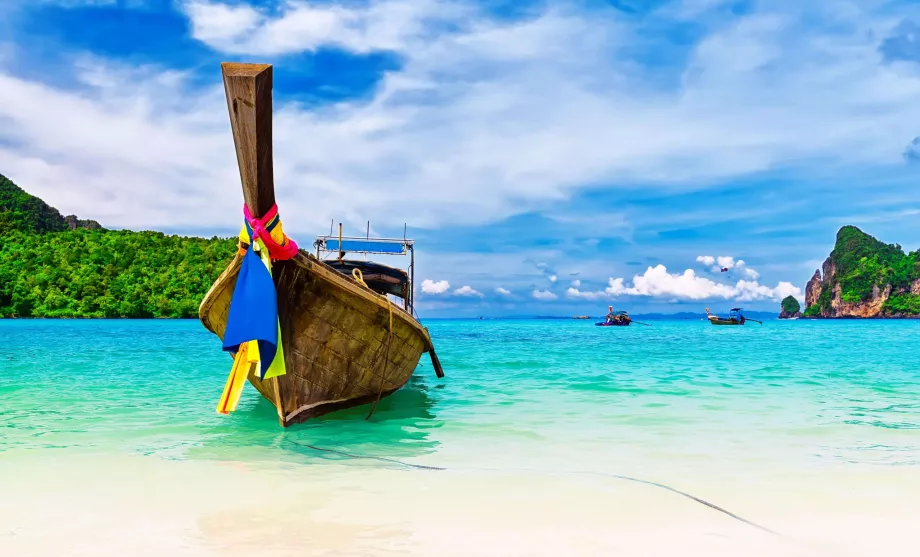

How easy is it to speak English in Thailand? What are the locals like and when are the shops closed in Thailand?
Language
With 50 million users,Thai is the most widely spoken official language in the country. It is a four-tone language that is close to Lao in origin and belongs to the Thai-Cadai language family.
It is written in a circular Thai script that originated in South India. Since it is a tonal language, it is difficult to learn, but it doesn't hurt to learn at least a few phrases that will definitely please the locals and also show respect for their culture.
Is it possible to speak English in Thailand?
In Thailand you can speak English in all resorts and major cities, especially in services such as tourist agencies, shops and sightseeing.
You won't speak much English with locals outside of tourism.
People
Thais are an extremely friendly and hospitable people. Not for nothing is Thailand called the land of smiles. You feel really welcome here. On the other hand, they are quite proud people and they do not let their homeland down.
At first they may appear a little reserved (with a good deal of humility or shyness), which is related to the deeply rooted Buddhist tradition. Many Thais also have problems with self-expression, with public speaking, and even with something as banal as asking questions. This stems from their natural shyness and the way they have always been brought up. They are noticeably prudish when it comes to sex and relationships, but very paradoxically very open about, for example, gender reassignment - the so-called Ladyboys.
Holidays
- New Year - January 1,
- Makha Bucha - the date varies (from late January to early March),
- It is a Buddhist holiday where the faithful gather to parade with lit candles,
- Chakri - April 6 (commemorating the enthronement of Rama I),
- Songkhran: 13-15 April (Thai New Year),
- Labour Day - 1 May,
- Coronation Day - May 5,
- Visakha Bucha - date varies (May),
- The most important Buddhist holiday, celebrating the Buddha's birth, enlightenment and death day,
- Asanha Bucha - date changes (July),
- Anniversary of the day the Buddha delivered his first public sermon. This festival marks the beginning of the monks' three-month fast,
- Khao Phansa (Buddhist fasting) - date varies (July),
- His Majesty the Queen's birthday - 12 August (it is also Mother's Day),
- Chulalongkorn - 23 October (Rama V's death day),
- Loi Krathong - Feast of Lights (celebrated on the 1st full moon in November),
- His Majesty the King's Birthday - 5 December (it is also Father's Day),
- Constitution Day - 10th December,
- New Year's Eve - 31 December.
Shops usually stay open on holidays. Offices are closed on holidays and weekends, which in Thailand fall on Saturday and Sunday.
History in a nutshell
Thailand's history has always been associated with arable farming, especially rice cultivation. The arrival of Buddhist missionaries from Sri Lanka also had a major impact on the current landscape.
The following centuries are characterised by the formation of the first empires, such as Siam (13th-15th centuries AD), with its centre in Sukhothai, and the former kingdom of Ayutthaya (14th-18th centuries), whose influence extended throughout the territory of present-day Thailand. In parallel, the Lanna Empire (13th-19th centuries) flourished in the area around Chiang Mai (today's north of Thailand). Growing unrest eventually resulted in the sacking of the then centre of Ayutthaya and its relocation further south on the opposite bank of the Chao Phraya River, where today ultramodern Bangkok stands proudly.
It is one of the few 'third world' countries that never became a colony during the expansionist policies of Europe.
In 1932, Siam went from an abolitionist to a constitutional monarchy and officially became Thailand. At the time of World War II, Thailand was first occupied by Japan, before (during the Vietnam War) becoming an ally of the US. Only the merits of King Rama IX, who ruled the country for 70 years (he died on October 13, 2016), put an end to the bloody coups and demonstrations in the country.
Today, the kingdom, more precisely a constitutional monarchy, is one of the newly industrialized countries of Southeast Asia. Today, Thailand's economy is mainly oriented towards tourism, making it one of the fastest growing in the second half of the 20th century.
Culture
The calmness and humility of the locals, accompanied by an eternal smile, is a reflection of the 2,500-year-old Buddhist tradition that is deeply rooted in the locals. This psycho-philosophical system is reflected in their way of life and can be felt at every turn. The locals here take life with much more detachment than in the western part of the world. They simply accept things or situations that come to them with humility and do not resist them.
Given the importance of Buddhism, it is therefore important to be aware of the rules based on it when visiting the country. Feet are seen as dirty here, it is very disrespectful and extremely rude to point your toes at anything (a statue or representation of Buddha). The head, on the other hand, is seen as sacred. It is the part of the body where our wisdom resides, so they do not dare to touch each other. At the same time, when visiting shrines, one should respect taking off one's shoes before entering the shrine or covering the shoulders and knees (especially for women).
Any Buddha image, large or small, destroyed or repaired, is considered a holy object. Public displays of affection between men and women can cause offence, especially in rural areas. Buddhist monks are not allowed to touch a woman, let alone have a woman touch them, or even accept anything from a woman. If a woman wants to give something to a monk, she must first give it to the man, who then hands it to her, or place it in a place near the monk.
It should also be remembered that the king, whom the people literally love (even adore), is the number one person and the locals will not let him go. Therefore, any derogatory remarks about him (or his family) can be punished by a minimum of 15 years in prison or expulsion from the country, in accordance with the so-called Lese majesty.
Tourism
Thailand is one of the world's most popular tourist destinations, becoming more accessible to the wider masses every year. Of all the other countries in Southeast Asia, the tourism industry here is perhaps the most developed, and so it is relatively easy to sort out and arrange everything here.
Services are of a high standard and one feels safe and welcome here.
Any questions left?
If you have any questions or comments about the article...

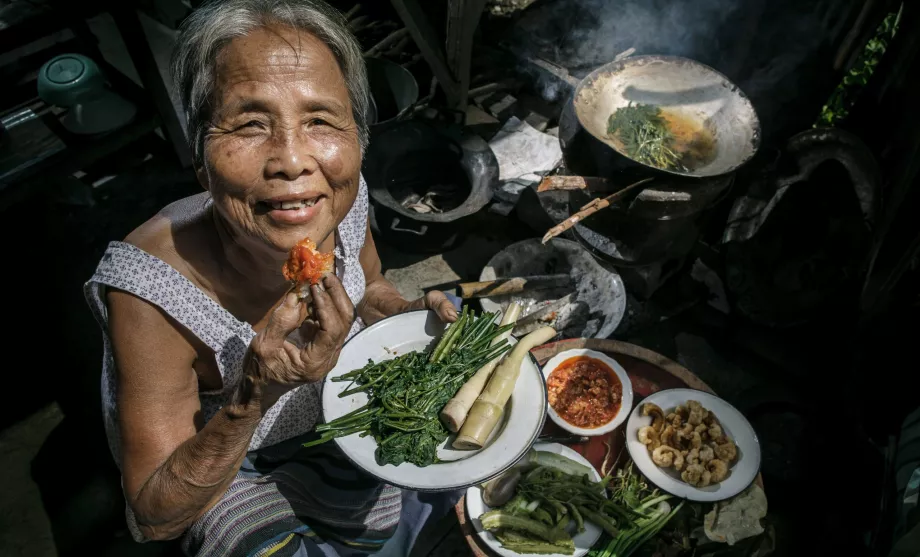
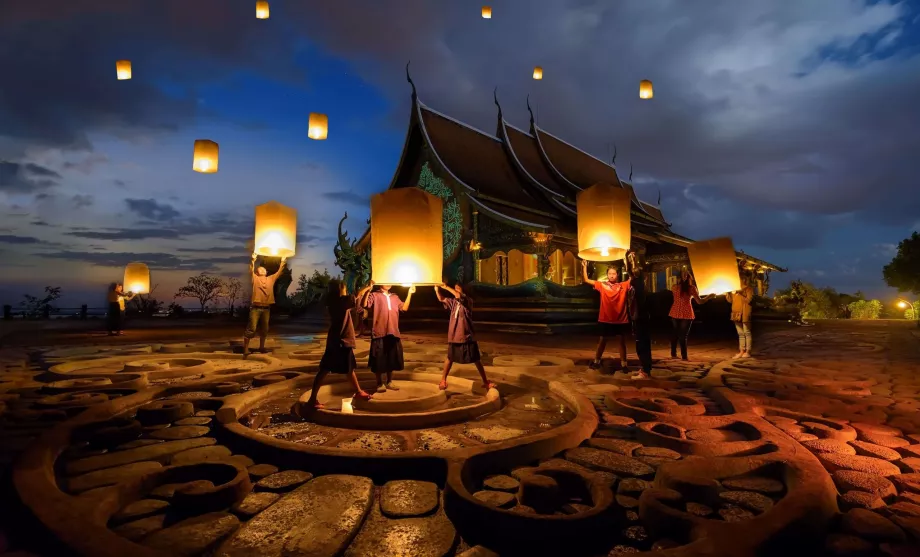
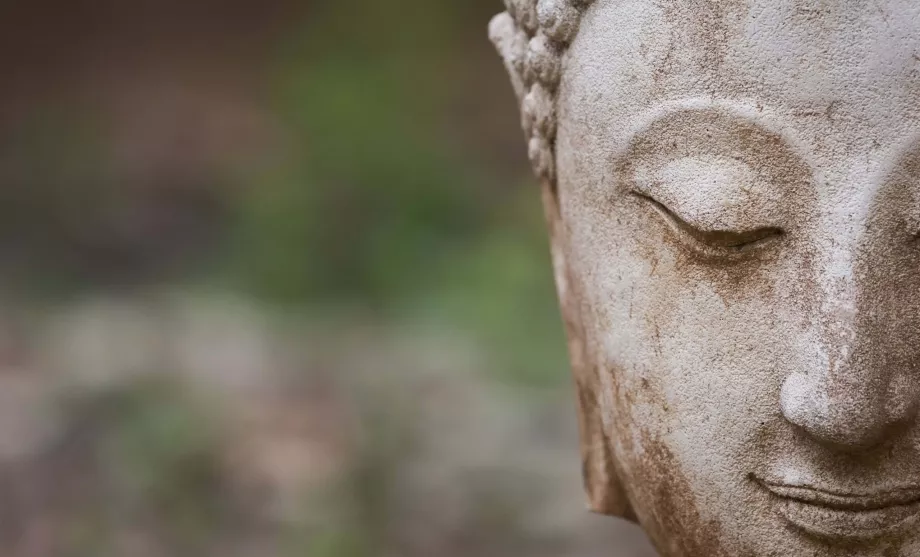
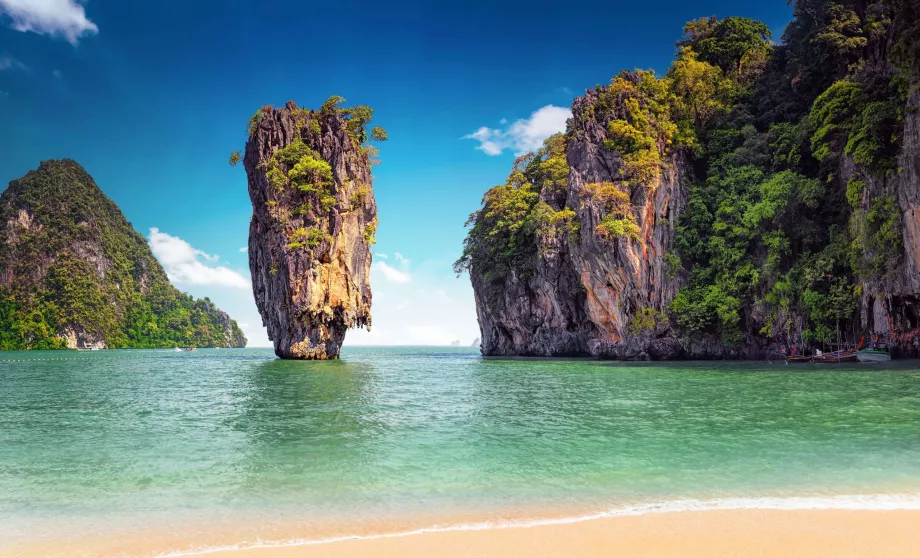
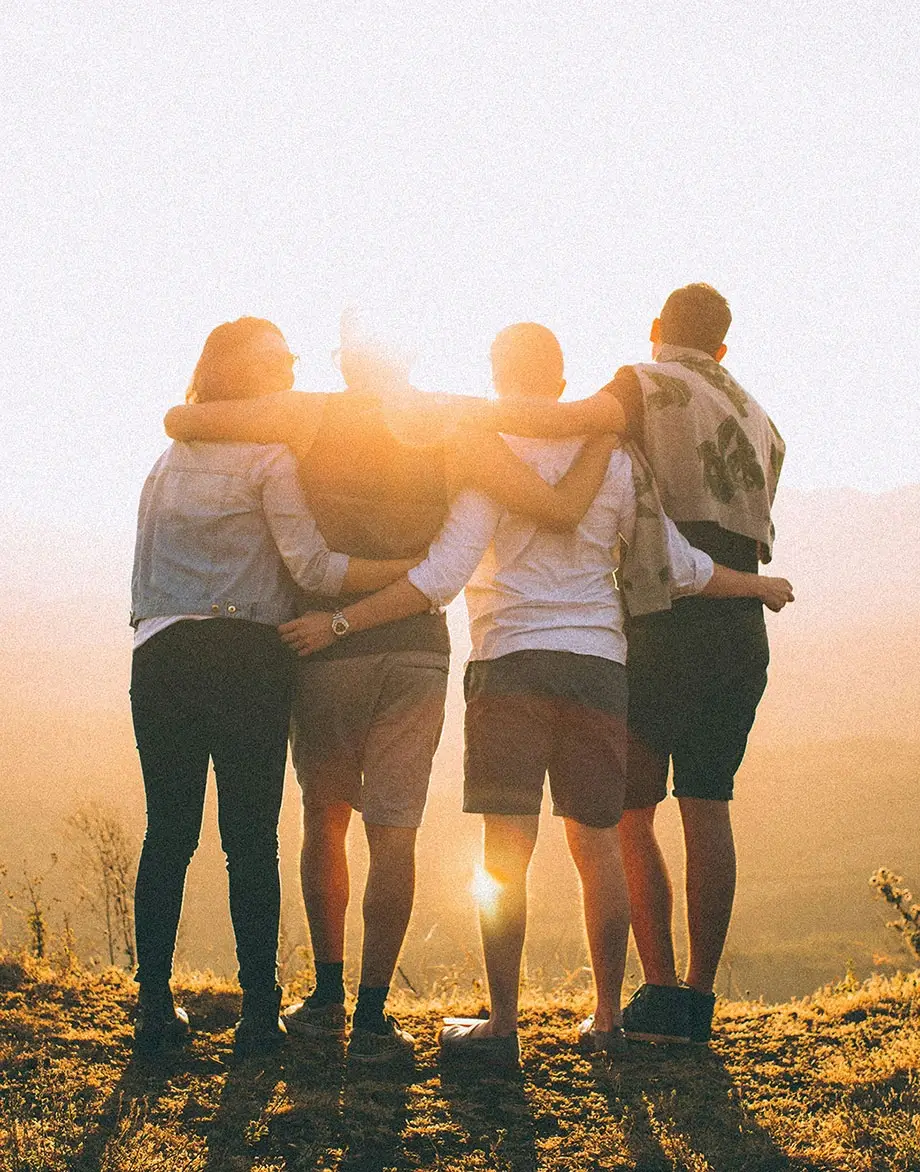
Hi, will you be in BKK for this year's Songkhran by any chance? ;-) if you are, we'd love to have a drink. :-)
hello, until 17.4., ... it will be over :-)
Unfortunately, we'll miss it :-( We're leaving on the 15th. Over the morning...